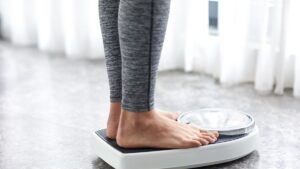The optimum calorie intake for a particular person is a topic of ongoing research by physicians and academics. These include developing knowledge about the number of calories in food, the number of calories consumed by the body, and the formula for estimating one’s daily caloric needs.
What Do Calories Mean?
We measure the quantity of energy that food provides in terms of calories. A calorie is the amount of energy it takes to heat one liter of water by one degree Celsius.
Different types of calories and their impacts
Protein, carbohydrates, and fat make up the majority of the calories in a normal human diet. For many individuals, alcohol consumption can be a significant source of additional caloric intake. The term “macronutrients” refers to these four dietary groups. Each macronutrient has a specific amount of calories per gram, despite the fact that there is no connection between nutritional advantages and calorie intake:
- Each gram of carbohydrates contains four calories.
Products made from grains, like pasta and bread, foods with a high starch content, like bananas as well as potatoes, and additives to foods, like sugar, are examples of carbohydrates.
- Each gram of protein contains four calories.
A few examples are tofu, eggs, nuts and meat.
- Fat produces nine gram of calories
Certain foods, including ghee, butter, seeds, nuts, avocados, olive oil, and others contain high amounts of calories.
- Alcohol contains seven calories
The average calorie content of alcohol is seven calories per mL, making it a non-essential macronutrient.
Different foods have an impact on your nutrition and wellbeing even though there is not a precise, ideal proportion of macronutrients. To prevent nutrient deficiencies, you must maintain a healthy diet.
The following are the factors that influence the amount of calories to be consumed:
- Gender
Men typically require more calories than women do. Some of the causes for this include hormones, total body weight, and muscular mass. It is difficult to determine the ideal amount because everyone’s everyday dietary requirements are different.
- The height of an individual
Since taller people have more lean body mass per pound, they can use a higher base metabolism number when calculating calories.
- Body Weight
Even though heavier individuals typically burn more calories while at rest, not all pounds are created equal. Since a pound of muscle can burn more calories than a pound of body fat, muscle-builders have higher calorie requirements.
- A person’s age
The blood sugar of young individuals is lower than that of older people and therefore they require more food. Older individuals have slower metabolisms and are less physically active than younger individuals.
- Level of Activity
Those who are active require more calories compared to those who work a sedentary job. You can calculate your BMR (Basal Metabolic Rate) based on factors like gender, age, weight and height. You can also figure out how many calories you’re burning during your workout.
Requirement of calories per day
The “calorie in” and “calorie out” model has been observed to be ineffective in some cases when attempting to lose weight. Despite its effectiveness, individuals often encounter difficulties in achieving this goal due to two factors:
- You might not be aware of how many extra calories are being added to your meals.
- Your body may burn fewer calories per day than you expected.
We will guide you through a calorie counter below to help you figure out your BMR. Let us first discuss how many calories you need each day.
- The adults
Using your BMI (body mass index) as a starting point, you can quickly perform a calculation online, but consulting a certified dietitian is always recommended. In general, females should consume 2000 calories per day, while males should consume 2500. These figures, however, are not appropriate for everyone because every individual has unique requirements.
- Adolescents
The nutritional demands on a person’s body are highest during the adolescent years. Early puberty marks the onset of hunger in both boys and females.
Boys typically need 2,800 calories per day, while females only need 2200.Teenagers need adequate amounts of vitamins and nutrients in addition to adequate calorie intake. It can cause lifelong problems with their frame of bones as well as brains if they skip out on essential nutrients while attempting to drop weight.
- The kids
Kids between the ages of 1-3 need around 900-1000 calories a day. Girls between the ages of 4 and 13 need around 1200-1600 calories a day. Boys need around 2400-1800 calories a day.
Calorie restriction is not advised for kids and also should not be done without close monitoring. Children need extra calories to develop. Nutritional deficiencies and poor growth can result from insufficient food intake.
Making use of Calculators for Weight Loss
The use of Calculator
The best method to determine your calorie requirements is to compare the number of calories you consume to the number of calories you burn. Having too many calories will make you gain weight. Losing calories leads to weight reduction.
This calculator is intended to provide knowledge. It’s highly recommended to verify with your doctor before making any significant changes to your every day calorie intake.
Calorie counting involves two steps:
- Calculate Your BMR (Basal Metabolic Rate)
The Mifflin-St Jeor calculator or equation is frequently used by personal coaches. For both men and women, it is distinct. For weight and height, you must use kilograms and centimeters, respectively.
The formula for males is as follows:
BMR = (10 x weight) + (6.25 x height) – (5 x age) + 5
Similar formula applies to women:
BMR = (10 x weight) + (6.25 x height) – (5 x age) – 161
- Calculate your Total Daily Energy Expenditure (TDEE)
Your BMR should be multiplied by the proper Match-McArdle factors once you have calculated it:
- Sedentary (No exercise plus desk job) = 1.2
- Slightly Active (1–3 days per week of light activity) = 1.375
- Somewhat Active (3-5 days per week of moderate activity) = 1.55
- Very Active (daily, 6-7 hours of vigorous activity) = 1.725
- Exceptionally active (two daily workouts) = 1.9
Your daily caloric requirement is determined by the number that results.
Getting to Your Ideal Weight
- Reduce Your Calorie Intake to Lose Weight
If you want to lose weight in a sustainable way, you need to eat less than you burn off. For example, a pound of body fat is 3500 calories. So, if you want to lose 3500 calories in a week, you need to have a daily calorie deficit of about 500 calories.
For a weekly weight loss of 2-3 pounds, it is recommended to reduce one’s daily caloric intake by 1000-1500 calories in order to achieve a deficit. This weight reduction plan functions best when you eat fewer calories and exercise routinely.
Also Read : How we can reduce our weight in short span of time.
- Put on weight
More factors go into intentional weight increase than simply consuming more calories. The majority of people who am interested in gaining weight aim to increase their lean muscle mass. Without fitness, you cannot complete this. Lean mass of muscles can only be developed through weightlifting and a healthy diet.
If you increase your daily calorie intake by between 500 and 1000 calories, you can anticipate gaining one to two pounds each week. Being more conservative with your additional calories will help you maintain a low BMI while getting lean. Consider your monthly muscle growth to be no more than one to two pounds.
- Keep up your weight
Your next task is maintaining your current weight, regardless of whether you lose or gain weight. The best method to reach and keep an appropriate weight is to precisely track your caloric intake. Consumption of healthy foods should result in decreased hunger pangs and the capacity to consume proper amounts of food. Estimate your daily caloric requirements and try to eat enough to keep your weight as it is.
Nutritional Information
Calorie counting is not necessary to support weight management when making small adjustments like swapping calorie-rich foods for low-calorie ones. Below given are some effective methods to slim down without calorie counting.
- Consume more protein and nutritious carbs and fat
Focus on eating a balanced diet that includes plenty of lean meats, whole grains, and healthy fats. The fiber content and the lack of additives will enable you to become more attuned to your hunger and decrease your craving for food.
Also Read : Food to give up during weight loss.
- Limit alcohol and sugary drinks
Numerous things can contain extra energy. All alcoholic and sweet drinks typically have useless calories. Your digestion is also slowed by alcohol! Limiting your intake of liquid calories to one or two servings a week is a wise method to cut calories.
- Increase your water intake
Over half of a person’s physique is made up of water. Your metabolism decreases when dehydrated. According to research, metabolism and your activity level can be detrimental by losing just 1% to 2% of the body mass.
Conclusion
The quality of your diet and the quantity of activity you get will determine your general health. Your suggested calorie intake is influenced by your sex, age, lean body mass, weight and height.









